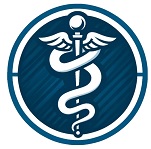For anyone hoping to pass their USMLE exams and become doctors, choosing an elite school or program won’t necessarily give an edge in medical school entrance exams (USMLE). Such schools may give access to more resources and opportunities but this won’t guarantee anything other than more competitive student pools and possibly an easier test environment.
Your next steps lie with you to adjust your study habits, seclude yourself and get to work.
Rankings
Rankings themselves can be an obstacle in choosing where to apply to medical school, making the choice even harder for many students. There are various kinds of rankings, and it’s essential that applicants understand which criteria each ranking uses in making their selection decision.
For instance, if you’re applying to medical schools on the east coast, Harvard and Yale might stand out in your mind as possible choices; however, their admission requirements can be very selective, which might make targeting only these programs wasteful of your time.
According to some reports, rankings may also be subject to bias depending on who created and published them. If for instance a medical school itself or popular publication were creating these rankings, their results may have an inclination towards being untrustworthy or misleading for students.
Personal Link
Medicine requires high standards of professionalism both on and off the job, which is why medical schools place great value in assessing an applicant’s social media content for premed students and future doctors.
Most medical students must adhere to stringent privacy settings on their public social media accounts; however, it’s important to keep in mind that friends of your friends could still see private images or texts even if your profile is set as private. Avoid posting anything unprofessional that could be discovered, such as pictures from wild parties, drugs and alcohol use or any racist statements or images that could potentially come out later.
Entry into medical school can be considered part of the hidden curriculum that shapes professional identity formation in students [1, 2]. The COVID-19 pandemic likely added another layer to this hidden curriculum by changing in-person clinical learning experiences and casting physicians as essential frontline heroes [2], potentially having an effect on how students self-categorize as medical professionals.
Acceptance Rates
Admission rates to medical schools have dropped substantially over time, meaning more applicants are competing against fewer spots for admissions. Therefore, students need to do their research prior to selecting schools to which they will apply.
Medical schools begin their evaluation process by looking at an applicant’s academic strengths; if their GPA and MCAT scores do not qualify them for an interview.
Medical school applicants with lower GPAs often still stand a good chance at entry; however, they may need to take a gap year and focus on strengthening their applications with relevant experiences. Retaking classes they performed poorly in can also help; it is best done early enough so as not to reflect negatively on an application due to too many retakes.
Financial Aid
Becoming a doctor requires an expensive investment. Medical schools offer several financial aid options that help students manage the expense. This may include scholarships, grants, student employment or loans. Most schools require students to fill out a Free Application for Federal Student Aid (FAFSA) form in order to determine eligibility for grants, scholarships and work study grants through this federal system.
As an additional option, some schools offer merit scholarships to incoming students during the admissions process, which may cover some or all tuition costs. Unfortunately, however, need-based funding options such as federal student loans often remain the only viable options.
Notably, most medical students do not come from poor backgrounds – in fact, most have household incomes exceeding $100,000 annually – and so often do not require to submit parental income statements when filling out FAFSA forms, leaving them ineligible for need-based financial aid offered at top schools.
